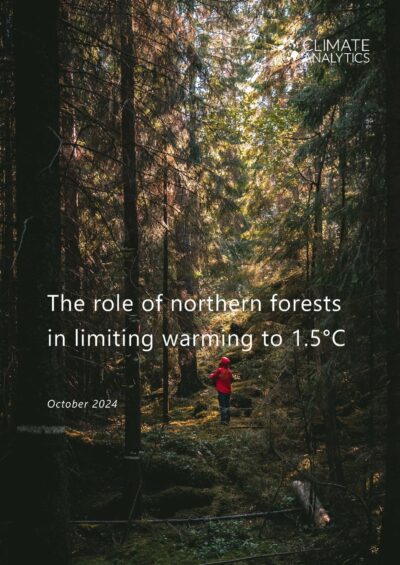Publications
Share


Peer-reviewed Papers
This study presents a new dataset of annual temperature projections for different overshoot pathways (when the 1.5 °C of global warming limit is exceeded). The data offers a unique opportunity to study local and regional climate change impacts of a range of overshoot scenarios, including when temperature thresholds might be exceeded, and by how much.

Peer-reviewed Papers
This study in Nature show that definitions of net zero now in widespread use will not actually stop global warming. The paper demonstrates that relying on natural carbon sinks, such as in forests or oceans, to 'offset' ongoing fossil fuel emissions will lead to continued warming.

Reports
Northern forests are critical in the race to net zero CO₂ by mid-century. Protecting and restoring these forests, alongside steep and rapid reductions in fossil fuel emissions, is essential both to mitigating emissions and to supporting forest ecosystem services and biodiversity.

Working Papers
New study finds the devastating floods in Nepal late September were exacerbated by rapid urbanisation and climate change. The analysis found the relentless rain, which fell on saturated ground in the late monsoon, was made at least 10% heavier and 70% more likely by climate change.

Peer-reviewed Papers
Seasonal forecasting of atmospheric parameters is important in various fields including agriculture. This study tests how machine learning can complement dynamic models using Tanzanian seasonal forecasts and finds this process uses far less computational power.
